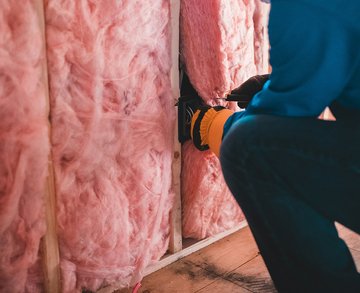The government has proposed raising the minimum energy efficiency standards on all tenancies in England to EPC band C by 2028, with a maximum of £10,000 to cover the necessary upgrades.
Be Prepared for Landlord EPC Changes by Taking Advanatage of Government Funding Schemes
Here is a list of financial resources you could utilise to improve your private rented properties.
- The Boiler Upgrade Scheme
- Tax Relief on Energy-Saving Materials
- A Green Deal Loan
- Energy Company Obligation Grants
- Empty Property Grants
- Smart Export Guarantee
- Great British Insulation Scheme
The Boiler Upgrade Scheme
This scheme offers one grant per home to help with the cost and installation of low-carbon heating technologies such as:
- £5,000 for an air source heat pump
- £5,000 for a biomass boiler
- £6,000 for a ground source heat pump
You may be eligible if your property has an installation capacity of up to 45kWth - which covers "most homes" - and a current EPC with no outstanding recommendations for loft or cavity wall insulation.
To be eligible, you must live in England or Wales and own the property. The scheme will run until 2028.
More information can be found here.
VAT Relief on Energy-Saving Materials
Zero-rate VAT will be applied to the installation of certain energy-saving materials in residential premises until March 31, 2027. The reduced rate should be charged to you by your supplier.
The zero-rate provision may also apply to "ancillary supplies" used in the installation. For example, because radiators are required to benefit from a new heat pump, VAT on the installation, as well as new radiators and pipe fittings, will be charged at zero.
Click here for more information.
A Green Deal Loan
Although the Green Deal Scheme was once a government project, it was privatised in 2015.
This loan can be used for a number of home upgrades, including insulation, heating, draught-proofing, double glazing, and renewable energy generation, such as solar panels or heat pumps. Some points to consider include:
- Green Deal loans are repaid through electricity bill payments.
- The loan repayments should not exceed the savings on your energy bill, but this does not guarantee that your bill savings will equal the loan repayments because it does not account for rises in energy prices.
- The loan is also connected to your property, so if you sell, it will pass to the new owner.
You can find a list of government-approved suppliers here.
Energy Company Obligation Grants
If you have any qualifying tenants from low-income or vulnerable households, they may be eligible for an Energy Company Obligation (ECO) grant to help with energy efficiency measures.
If your property has an EPC rating of F or G, grants must be used to raise it to band D or higher, and money for privately leased properties will support 'the least efficient homes in bands E-G only'.
According to UK Energy Support, you can urge eligible tenants to apply for the award to help enhance your property's energy efficiency "for years to come by installing electric storage heaters or fulfilling insulation grants such as free cavity wall insulation or loft insulation grant."
The government has stated that the fourth edition of the ECO will "upgrade around 450,000 homes, the majority of which will be upgraded to EPC band C" during the next four years.
You can check eligibility for a grant here.
Empty Property Grants
Local councils may also be able to offer you some financial support to make energy improvements to your properties.
For example, in Kingston, the empty homes grant can pay up to £25,000 in thermal upgrades to windows, boiler work, and insulation on buildings that have been empty for at least six months.
Local schemes may have restrictions, such as not being able to sell the property within five years of receiving the grant and having to rent the property through the council's private leasing scheme for that five-year period. However, if you're in the private rented sector for the long haul, looking into any similar local schemes could be an option.
Visit your local council's website to discover what programmes are offered.
- Gloucester City Council
- Cheltenham Borough Council
- Stroud District Council
- Worcester City Council
- Forest of Dean District Council
- Tewkesbury Borough Council
Smart Export Guarantee
If your property already has renewable energy, the Smart Export Guarantee (SEG) compensates customers for renewable energy that’s generated and fed back into the grid. These include:
- Solar
- Wind
- Hydro
- Micro combined heat and power
- Anaerobic digestion
If you're thinking about switching to renewable energy, some of these energy sources may be covered by the zero-rate VAT described above.
You'll need to sign up for an SEG tariff with a large energy supplier to avoid handing your energy away for free to the National Grid, and you should search around for the best tariff too.
Search for "smart energy tariff" and "energy suppliers" online to see what options are available to you.
Great British Insulation Scheme
The government's £1 billion Great British Insulation Scheme, formerly known as the "ECO+ Scheme," is expected to run from spring 2023 to March 2026, and will assist homes across the country in installing new home insulation.
This assistance will be offered to persons who do not already get government assistance for home improvements.
This is an expansion of the current Energy Company Obligation framework, as described above. 80% of the funds will be accessible to households with EPC ratings of D or lower, as well as those in lower council tax categories.
Click here for more information on the government's plans.





